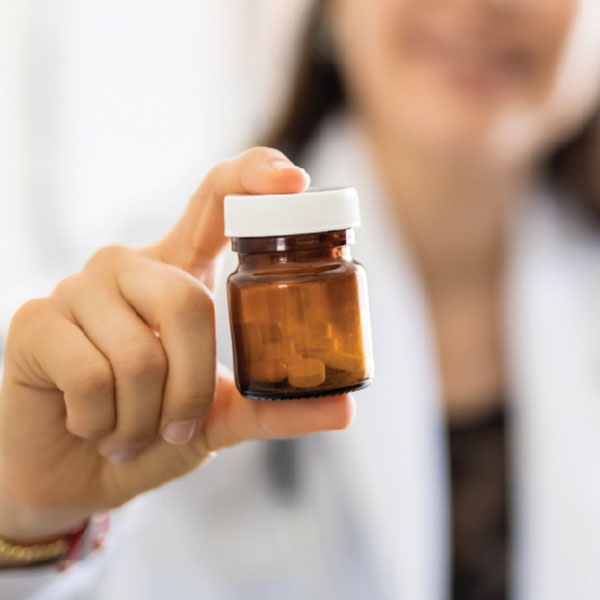LOCATIONS
Local Resources for Recovery and Drug Rehab In Yonkers
Local Resources & Information to Kickstart Your Recovery Journey
If you are in the Yonkers area and need help now, call (888) 290-5601
Help is available for those struggling with addiction in Yonkers
Yonkers offers a range of resources for residents struggling with addiction. The city, home to over 200,000 people, provides multiple options for substance abuse treatment and support. For those seeking help, Yonkers’ proximity to New York City also allows access to a comprehensive array of treatment options and specialists.
Start your recovery today with our local resources and information to start your recovery from drug and alcohol abuse.
Types of Addiction Treatment in Yonkers
Finding the right addiction treatment program is crucial for a successful recovery journey. Thankfully, a variety of treatment options are available to address different needs:

Medically Supervised Detox
The first step for many people seeking addiction treatment is medically supervised detox. This process involves safely managing withdrawal symptoms under the care of medical professionals. Detoxification helps cleanse the body of addictive substances, minimizing the risks associated with withdrawal and ensuring a more comfortable experience.

Medically Assisted Treatment
MAT is often used for opioid and alcohol dependence and is tailored to address the specific needs of each person. Medications are prescribed to help reduce cravings and withdrawal symptoms, allowing individuals to focus on their recovery without the constant struggle of managing cravings.

Inpatient
Inpatient treatment, also known as residential treatment, offers a structured and immersive environment for those needing intensive support. This type of treatment involves staying at a facility where individuals receive comprehensive care, including medical supervision, therapy, and support services, 24/7.

Aftercare
Aftercare is an essential component of the recovery process that helps people transition from intensive treatment back into their daily lives. It includes ongoing support and resources to prevent relapse and ensure continued progress.
How to Choose the Right Drug Rehab In Yonkers For Your Loved One
Choosing the suitable drug rehab facility for your loved one can greatly influence the success of their recovery journey:
- Personalized treatment plans: Effective rehab centers assess each patient’s unique situation to design a customized treatment approach. This includes personalized therapy sessions, medication management, and specific interventions based on the type of substance used and personal history, along with any dual diagnosis of behavioral health issues.
- Family involvement: Consider whether the rehab program involves family therapy or support. Family involvement can be vital in recovery, as it helps to address relationship dynamics and provides support for both the patient and their family members. Check if the facility offers family counseling sessions or educational workshops for loved ones.
- Holistic therapies: Explore whether the facility incorporates holistic or complementary therapies such as yoga, meditation, acupuncture, or nutrition counseling. These therapies can support traditional treatment approaches and help address the physical, emotional, and spiritual aspects of recovery.
- Relapse prevention strategies: Inquire about the facility’s approach to relapse prevention. Effective programs include strategies for identifying triggers, developing coping mechanisms, and creating a strong support network. Look for rehabs that offer relapse prevention workshops, skill-building sessions, and ongoing support after treatment.
- The continuum of care: Assess whether the facility provides a continuum of care, meaning they offer services that transition smoothly from one phase of treatment to another. This includes moving from inpatient care to outpatient therapy and incorporating follow-up care to ensure a seamless recovery process.
- Success metrics: Ask about how the facility measures success and integrates aftercare into its programs. Effective rehabs track patients’ progress through follow-up assessments and offer integrated aftercare services to support long-term recovery.
- Accessibility and convenience: Consider the facility’s accessibility in terms of location, transportation, and facility hours. A convenient location or flexible visitation hours can make it easier for family involvement and reduce logistical challenges.

Continuing Recovery Care & Sober Living Programs in Yonkers
Continuing recovery care and sober living programs in Yonkers play a vital role in supporting people as they transition from formal addiction treatment to independent living. These programs provide ongoing support and resources to help individuals maintain their sobriety and build a stable foundation for long-term recovery. Continuing care typically includes regular outpatient counseling, support groups, and relapse prevention workshops, offering a structured approach to managing recovery while reintegrating into daily life. This phase of recovery focuses on reinforcing the skills and strategies learned during intensive treatment and ensuring that individuals have the necessary support to navigate the complexities of post-treatment life.
Sober living programs in Yonkers offer a supportive and structured environment for those who need additional assistance as they adjust to a substance-free lifestyle. These programs provide safe, drug-free housing where individuals can live alongside others who are also committed to recovery. By combining a structured living environment with ongoing support, sober living programs facilitate a smoother transition to independent living and increase the likelihood of sustained recovery.

Local Stats You Need to Know
In 2020, Westchester County saw 128 residents pass away from opioid-related issues.[1] Over the years, the county’s rate of opioid overdose deaths has fluctuated, with rates of 12.0 per 100,000 in 2017, rising to 13.7 in 2018, then dropping to 9.4 in 2019 before increasing again to 13.1 per 100,000 in 2020. Comparatively, the rest of New York State saw higher rates, peaking at 21.8 per 100,000 in 2020, indicating a regional disparity in overdose rates.
Hospital outpatient services in Westchester County reveal further insights into substance use trends in the area: more men than women utilized addiction treatment services, reflecting broader patterns of substance use among genders.[2] Additionally, people aged 25-34 accessed the most services compared to other age groups, highlighting this demographic as a key focus for substance use treatment and prevention efforts.
Start Your Addiction Recovery in Yonkers Today
Let Paramount Wellness guide you in building a new life of prosperity and hope.
Sober Activities in Yonkers
-
- Visit the Hudson River Museum: Explore art, history, and science exhibits with a focus on the Hudson River region.
- Walk through Untermyer Park and Gardens: Enjoy the historic gardens, including the Walled Garden, and take in stunning views of the Hudson River.
- Explore the Science Barge: A floating environmental education center with interactive exhibits on sustainability and green technology.
- Stroll through the Yonkers Waterfront: Relax along the scenic waterfront with parks, trails, and dining options.
- Discover the Philipse Manor Hall State Historic Site: Tour this 18th-century mansion and learn about its historical significance.
- Play at Tibbetts Brook Park: Enjoy recreational facilities, including a pool, playground, and sports fields.
- Shop and Dine at Ridge Hill: Visit this outdoor shopping center with a variety of stores, restaurants, and entertainment options.
How to Pay For Alcohol or Drug Rehab in Yonkers
Paying for an addiction treatment center stay can be a cause for anxiety, but there are several options available to help manage the costs:
- Insurance coverage: Check with your health insurance provider to determine what addiction treatment services are covered. Many plans cover a range of rehab services, including inpatient and outpatient care. Ensure that the rehab facility is in-network to maximize your benefits.
- Medicaid: For those who qualify, Medicaid can provide financial assistance for substance abuse treatment. New York State’s Medicaid program covers various rehab services, so contacting a local Medicaid office or social worker can help you understand your options.
- Sliding scale fees: Some rehab facilities in Yonkers offer sliding scale fees based on your income and ability to pay, making treatment more affordable if you have limited financial resources.
- Grants and scholarships: Look for grants or scholarships offered by non-profit organizations and community health groups. These can provide financial assistance or reduce the cost of treatment.
- State and local programs: New York State and Yonkers have local programs that may provide funding or support for addiction treatment. Contact local health departments or community organizations for information on available resources.